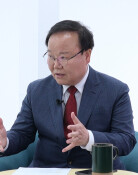[Op-Ed] The Fifth Energy
The Giddens Paradox can be explained in that the danger trigged by global warming is not visible in daily life or instantaneous, but once the danger becomes real, it is too late to take action. The theory is named after Anthony Giddens, a professor at the London School of Economics and author of The Third Way, and has greatly influenced European leftists. He said civic participation is essential to prevent global warming. Generally, the advice that one has to change his or her habits to prevent against an uncertain danger does not work. In particular, warnings over global warming are as effective as telling smokers to kick the habit cold turkey after being informed of the risk of lung cancer.
British environmental consultant Joanna Yarrow has suggested 1,001 ways to reduce carbon emissions, the culprit of global warming, and to protect the environment in her book, 1,001 Ways to Save the Earth. They include riding a bicycle, taking big steps, use LED products that use less energy, and rinsing in cold water. The number of those who follow her advice has apparently not risen probably because many believe that doing so will make little or no difference. The world could still fall short in reversing global warming even if everyone joins the effort.
The French environmental group Negawatt surveyed the French peoples energy consumption patterns over the past 30 years and found that conservation can alone save 64 percent of primary energy consumption. As such, conservation is the most important way to resolve energy problems. Korean President Lee Myung-bak called energy conversation the "fifth energy" in his radio address yesterday, saying, Green living is more important than green technology. It is essential to spread such a view to more people and take collective action but it remains to be seen whether green life can take root in daily life.
Koreans have a huge potential to achieve something remarkable when they are determined to do so. Good examples are the gold collection drive in the wake of the 1997 Asian financial crisis and the clean restroom movement that resulted in the installation of bidets and deodorant in restrooms off freeways. Koreans also adopted a pay garbage disposal system from 1995 that Japan had considered for 20 years. Green living is another good opportunity to show Koreas can-do spirit to the world.
Editorial Writer Chung Sung-hee (shchung@donga.com)
Headline News
- Med professors announce intention to leave hospitals starting Thursday
- Bridge honoring Sgt. Moon Jae-sik unveiled in Pennsylvania
- Chief of Staff Chung tells presidential secretaries to stay away from politics
- US FTC bans noncompete agreements
- N. Korea launches cyberattacks on S. Korea's defense companies







